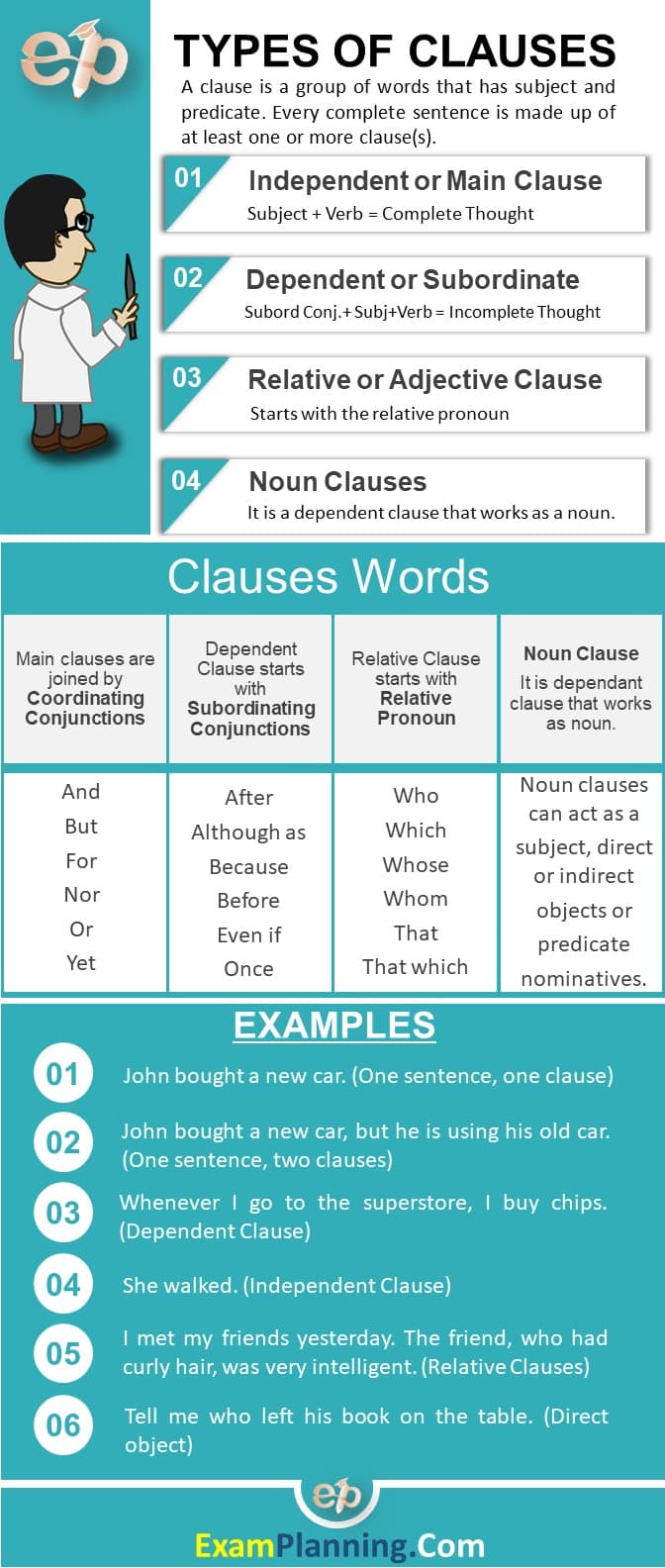What Is Noun Clause | A noun clause usually begins with the following words: So, what is the noun clause? English easy learning grammarsentences and clausesa clause is a group of words which contains a verb. That she did not pass the exam is obvious at this point. Noun clauses replace nouns, and this tutorial shows how.
Noun clauses can function as subjects, objects, or complements. Noun clauses can act as subjects, direct objects, indirect objects, predicate nominatives. For example (noun clauses shaded) (this noun clause is the direct object of ask.) he knows all about art, but he doesn't know what he likes. What he said = object what he bought was awful: A noun clause is a subordinate clause.

A noun clause functions as a noun, which means it can be a subject, direct object, indirect object, object of a preposition, predicate nominative, or noun clauses usually begin with words called relative pronouns such as how, that, what, whatever, when, where, which, who, whoever, and why. If you want to identify the noun clause in a sentence, ask the question with 'what'. (here the noun clause what she is doing is the object of the preposition in.) noun clauses as compliments. …what you have learned. this clause is a noun clause. A noun clause can act as subjects, objects (direct objects and indirect objects), predicate nominatives, complements, or objects. = subject complement of 'uncertainty' describing what is uncertain. A noun clause is a dependent clause that acts as a noun. What is noun clause, example sentences A noun clause is always a dependent clause, meaning it's a part of the sentence that can't stand on its own as an independent thought. A noun clause functions as noun in a sentence. What you have said makes her sad. That she did not pass the exam is obvious at this point. It can be the subject or object of a verb.
Noun clauses can play the role of. Just like nouns do, a noun clause names people, things noun clauses have words like; That means it cannot stand alone. (here the noun clause what she is doing is the object of the preposition in.) noun clauses as compliments. A noun clause is a subordinate clause.

The verb in a clause can be finite use this pan for the pasta. We know that a noun names a person, place, thing, or idea. A noun clause refers to a clause that serves the same purpose as a noun and is usually dependent. A noun clause is a dependent clause that contains a subject and a verb. If you want to identify the noun clause in a sentence, ask the question with 'what'. A noun clause is a clause (containing a subject and a verb) that can replace a noun. Noun clauses can function as subjects, objects, or complements. A noun clause serves the same purpose as a noun. It can be the subject or object of a verb. We already have talked about independent and dependent clauses. For example (noun clauses shaded) (this noun clause is the direct object of ask.) he knows all about art, but he doesn't know what he likes. • noun clauses what's a noun clause? It can be the subject or object of a verb.
What is a noun clause? They're cool because the whole clause acts as a noun. • noun clauses what's a noun clause? A noun clause is that contains a finite verb and functioning like a noun within a sentences. It is a direct object in this sentence.

A noun clause is that contains a finite verb and functioning like a noun within a sentences. A noun clause is a dependent clause that acts as a noun. If you want to identify the noun clause in a sentence, ask the question with 'what'. A noun clause functions as a noun. I'm elizabeth o'brien, and my goal is to get you jazzed about grammar. Noun clauses generally begin with words such as how, that, what, whatever, when, where, whether, which, whichever, who, whoever, whom, whomever, and why. What is noun clause, example sentences Like all clauses, a noun clause has a subject and a verb. That means it cannot stand alone. • noun clauses what's a noun clause? A noun clauses can begin with … 1. Noun clauses can also be an object of a noun clause: Noun clauses consist of a clause preceded by a subordinating conjunction.
What Is Noun Clause: Find out why noun clauses that start with a question are used to answer a question.
No comments
Post a Comment